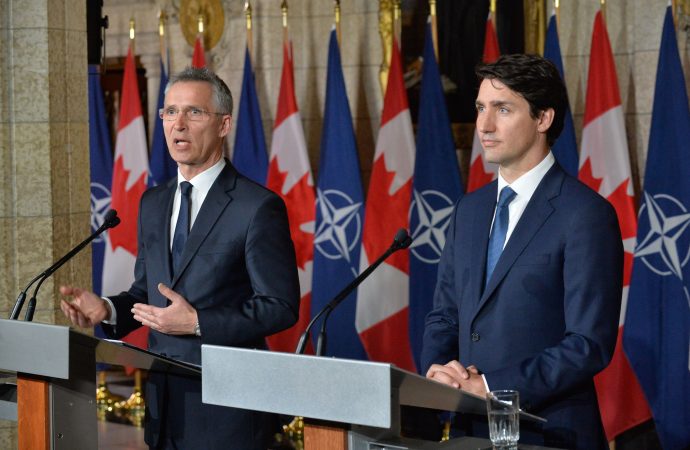Debates on nuclear disarmament often focus on two groups: nuclear-armed states, whose arsenals pose existential risks, and the majority of states advocating for their abolition. Overlooked, however, is a crucial third group—nuclear-dependent states—whose policies significantly hinder progress toward a nuclear-free world.
Nuclear-dependent states, including members of military alliances like the North Atlantic Treaty Organization (NATO), exist in a precarious duality. These states frequently portray themselves as responsible actors committed to disarmament, highlighting their decision to forego nuclear weapons as a principled stand. Yet, they simultaneously endorse and benefit from nuclear deterrence policies, often describing nuclear weapons as their “supreme security guarantee.” Some even participate directly in nuclear planning groups, embedding nuclear weapons in their national security strategies.
This duality creates a profound tension: how can a state advocate for disarmament while aligning itself with policies that ensure the indefinite possession of nuclear weapons? This contradiction weakens the legitimacy of nuclear-dependent states as advocates for disarmament and enables the continuation of nuclear deterrence as a cornerstone of international security.
Nuclear-dependent states actively perpetuate reliance on nuclear weapons by endorsing deterrence policies. This endorsement not only legitimizes these weapons but also strengthens the position of nuclear-armed states, who claim their arsenals are indispensable for allied security.
Their actions undermine efforts to isolate nuclear-armed states and delegitimize their reliance on weapons of mass destruction. In effect, nuclear-dependent states provide political cover for the very policies the disarmament community seeks to dismantle.
Breaking this impasse requires addressing the role of nuclear-dependent states head-on. These states must recognize the inconsistency in their position and take decisive steps to resolve it. Reassessing their reliance on nuclear deterrence and advocating for alternative security arrangements would mark a critical shift in their role within the disarmament regime. Such a transformation is necessary to align their policies with the humanitarian and legal imperatives of eliminating nuclear weapons.
The self-perception gap surrounding nuclear-dependent states further complicates their role. While these states often portray themselves as strong supporters of disarmament, they are frequently viewed by many in the international community as obstacles to progress. Civil society and many non-nuclear-weapon states regard their endorsement of deterrence as a major barrier to achieving a world without nuclear weapons. This misalignment of self-perception and external reality underscores the need for greater accountability and an urgent reassessment of their policies.
Canada exemplifies this dynamic. As a NATO member, Canada frequently emphasizes its commitment to disarmament but simultaneously endorses alliance policies that prioritize nuclear deterrence. This includes supporting NATO’s nuclear posture, which is rooted in the practice of nuclear sharing and the stationing of nuclear weapons in non-nuclear weapon states (NNWS).
Such contradictions undermine its credibility and position it as an enabler of the status quo rather than as a champion of change. Like Canada, other NATO members display similar contradictions between their disarmament rhetoric and their endorsement of nuclear deterrence. This shared ambivalence undermines the credibility of NATO’s non-nuclear members as genuine advocates for abolition.
To fulfill its potential as a leader in disarmament, Canada must move beyond its current ambivalence and adopt policies that reject reliance on nuclear weapons. Such a shift would not only enhance its credibility but also serve as a powerful example for other nuclear-dependent states.
The involvement of nuclear-dependent states is indispensable for progress toward nuclear disarmament. Their policies have the power to either reinforce or challenge the existing nuclear order. Their transformation from enablers of nuclear deterrence to advocates for abolition is not just desirable—it is essential.
Nuclear-dependent states have a unique opportunity to bridge the divide between nuclear-armed and non-nuclear-weapon states. By rejecting deterrence and aligning their actions with their stated disarmament commitments, they can play a pivotal role in building the political and normative environment necessary for a nuclear-free world. Without their active engagement, the prospects for disarmament will remain grim.
Addressing the role of nuclear-dependent states is not just a step toward disarmament—it is an essential foundation for achieving a world free of nuclear weapons. Without this decisive shift, the international community will remain ensnared in a dangerous nuclear weapons status quo.
Now is the time for these states to resolve their contradictions and position themselves firmly in the nuclear abolition camp.









